At Kimberton Whole Foods, we’re all about building up your health through a balanced diet, quality supplements, and staying hydrated. We believe that prevention is the best medicine. That’s why many of our customers are now turning to adaptogens as part of a healthy lifestyle. What are adaptogens? Read on to find out.

Photo courtesy of Pukka
Adaptogens: Defined
Adaptogens are a class of non-toxic plants that are thought to help the body resist stress and create balance. The term “adaptogen” was first coined in 1947 by Russian scientist, Nikolai Lazarev. However, adaptogens have been used for centuries in many cultures, including in China, India, and Scandinavia. The formal definition for an adaptogen was created by Doctors Brekham and Darymovhe in 1968, and includes the following criteria:
- An adaptogen is safe, or non-toxic
- An adaptogen increases the body’s power of resistance against multiple stressors including physical, chemical, or biological agents
- An adaptogen has a normalizing influence on physiology, helping the body achieve balance
What are the benefits?
Adaptogens may be used as a supplement to a healthful diet, sleep, and exercise, to help the body resist outside stressors. Adaptogens are thought to interact with the hypothalamic-pituitary-adrenal axis and sympathoadrenal systems. Benefits might include a balanced mind, immune system, and energy levels. Although there is not much scientific research on this topic, we know that people have been relying on these healing plants for centuries for this purpose with positive effects.
How can I take adaptogens?
Different adaptogens have different functions, so you may need to do some research to decide which may be best for you. We also encourage you to speak with your doctor before introducing new supplements to your diet. White some adaptogens may be consumed (such as added to a smoothie), others are best taken as a supplement or brewed into a tea.
6 Adaptogens To Know
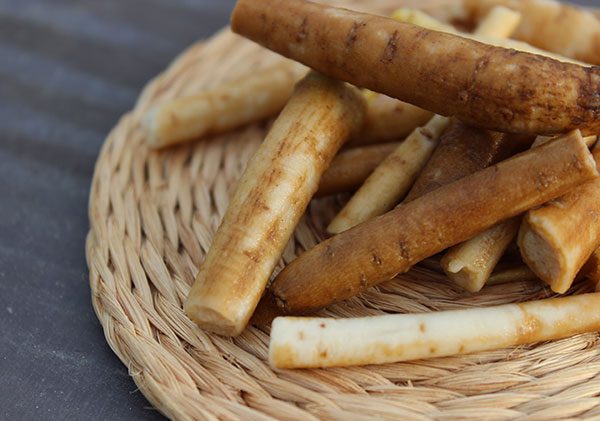
Image courtesy of superfoodevolution.com
ASHWAGANDHA
Ashwagandha is a shrub that is native to India, northern Africa, and the Middle East. Belonging to the same family as the tomato (nightshade), the shrub produces a small red fruit and has yellow flowers. It is the roots of the plant that are used in Ayurvedic* medicine, to combat stress and anxiety. It may also be used to improve memory and learning, and does not cause drowsiness. It is considered an antioxidant and anti-inflammatory supplement.
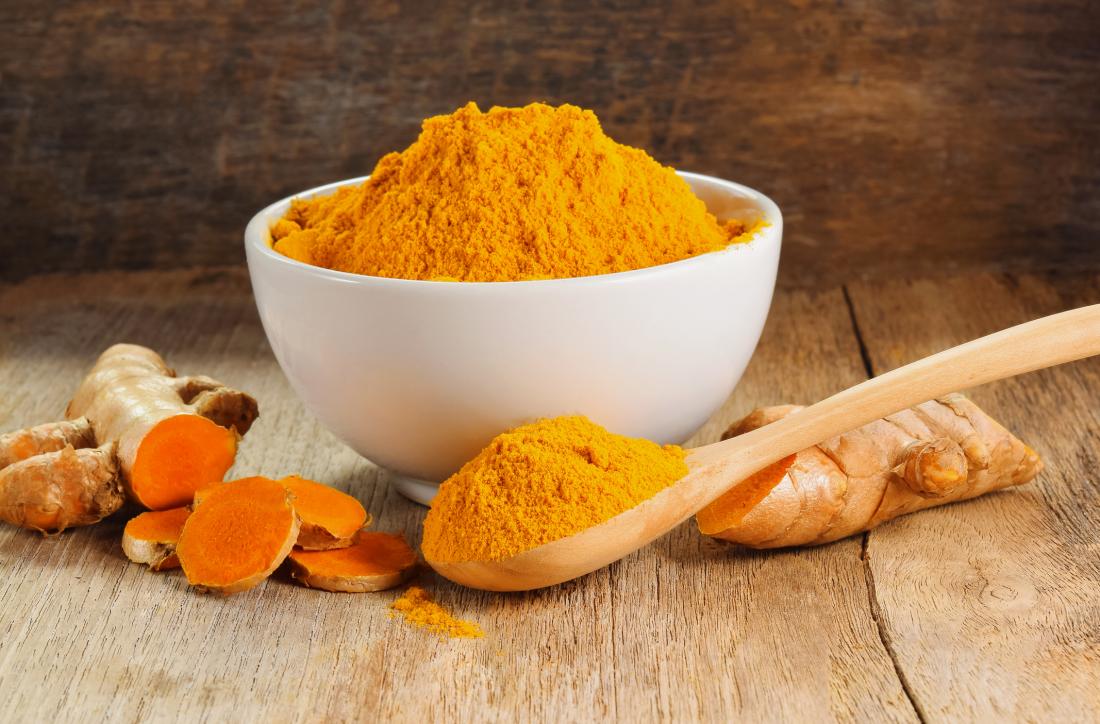
Image courtesy of medicalnewstoday.com
TURMERIC
Turmeric is a rhizome of the ginger family, an herbaceous perennial flowering plant. It is native to India. The root of turmeric is used in Ayurvedic medicine to maintain healthy weight, blood glucose, and cholesterol particularly during times of stress. Turmeric is an antioxidant and anti-inflammatory.
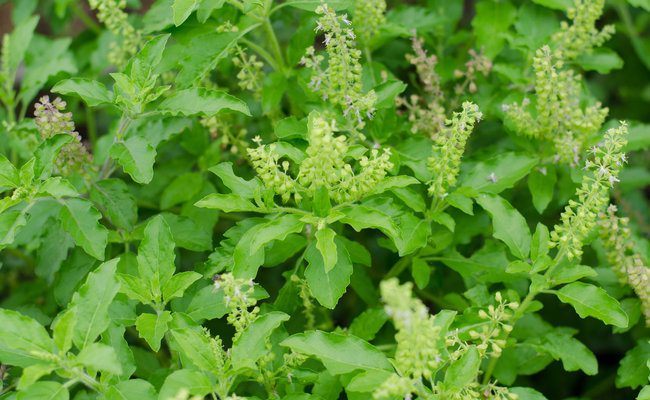
Image courtesy of care2.com
HOLY BASIL
Holy Basil is a perennial plant of the mint family. It is native to India. You may see this plant commonly labeled “Tulsi”. Typically it is the leaves and flowers that are used in supplements and teas. Holy Basil is traditionally used in Ayurvedic medicine. It is considered a sacred plant by the Hindus and is often planted around Hindu shrines. It has antioxidant and anti-inflammatory properties, and is believed to have antidepressant and antianxiety effects, as well.
“Tulsi is a unique plant: its aromatic, uplifting, clove-like scent inspires and brings focus, and the leaves and flowers buffer the effects of stress on body and spirit. This adaptogenic effect may be part of why Tulsi is so revered in its homeland, India: planted by the door, it brings health and protects the house. It is a cousin to garden basil, but gives us so much more: it deserves its nickname, “holy” basil.” Guido Mase, Clinical Herbalist at Urban Moonshine.
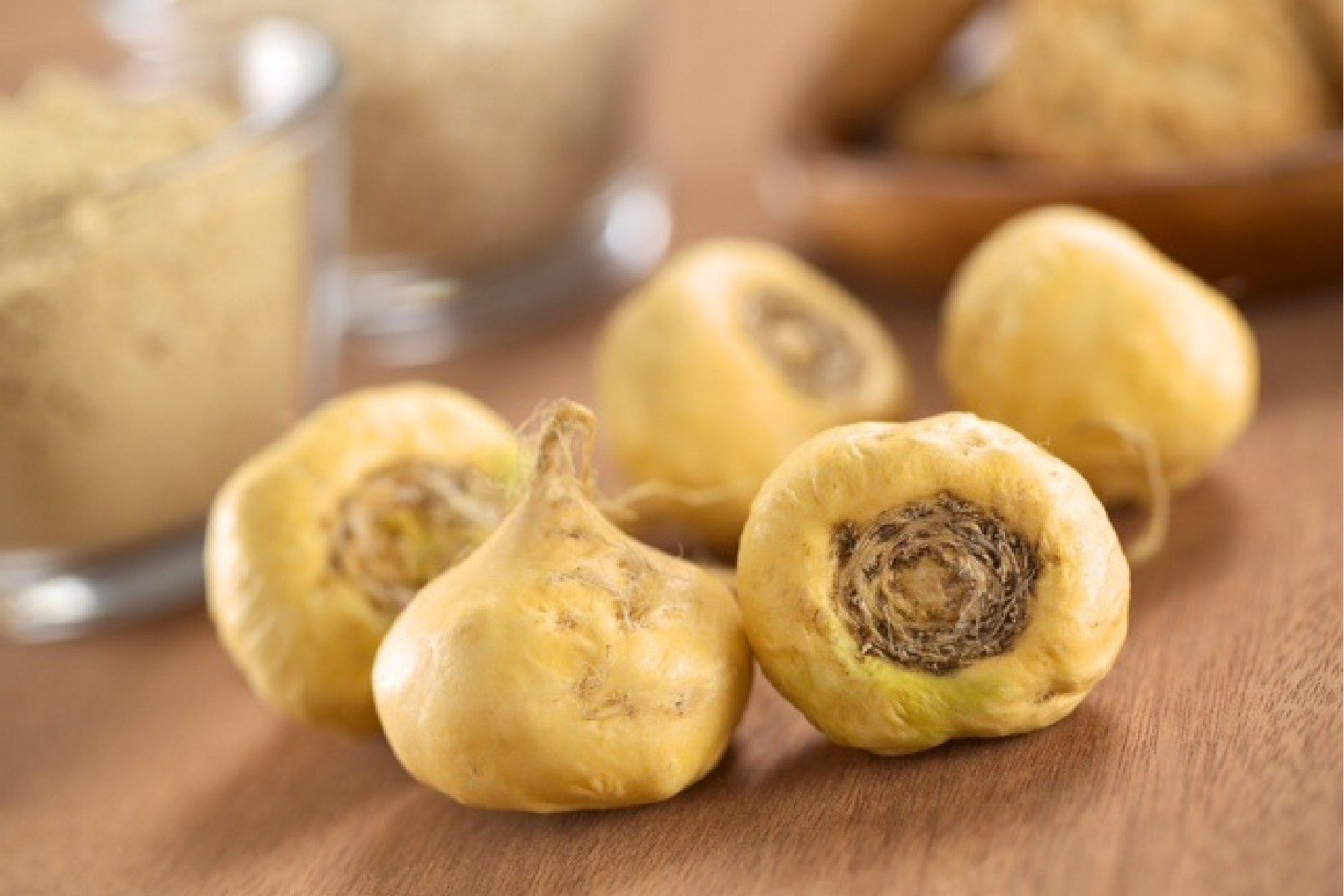
Image courtesy of adayinapril.com
MACA
Maca, also referred to as Peruvian Ginseng, is a biennial plant of the cabbage family. It is native to South America, and in appearance closely resembles a radish or parsnip. The root is dried and used as a powder, typically, but it can also be enjoyed as a root vegetable. Maca is used to maintain hormonal balance. It is also rich in minerals like Calcium, Phosphorus, Zinc, and Iron. Maca is an antioxidant, and may be used to reduce sexual dysfunction, improve stamina, and general improve function of the endocrine system.
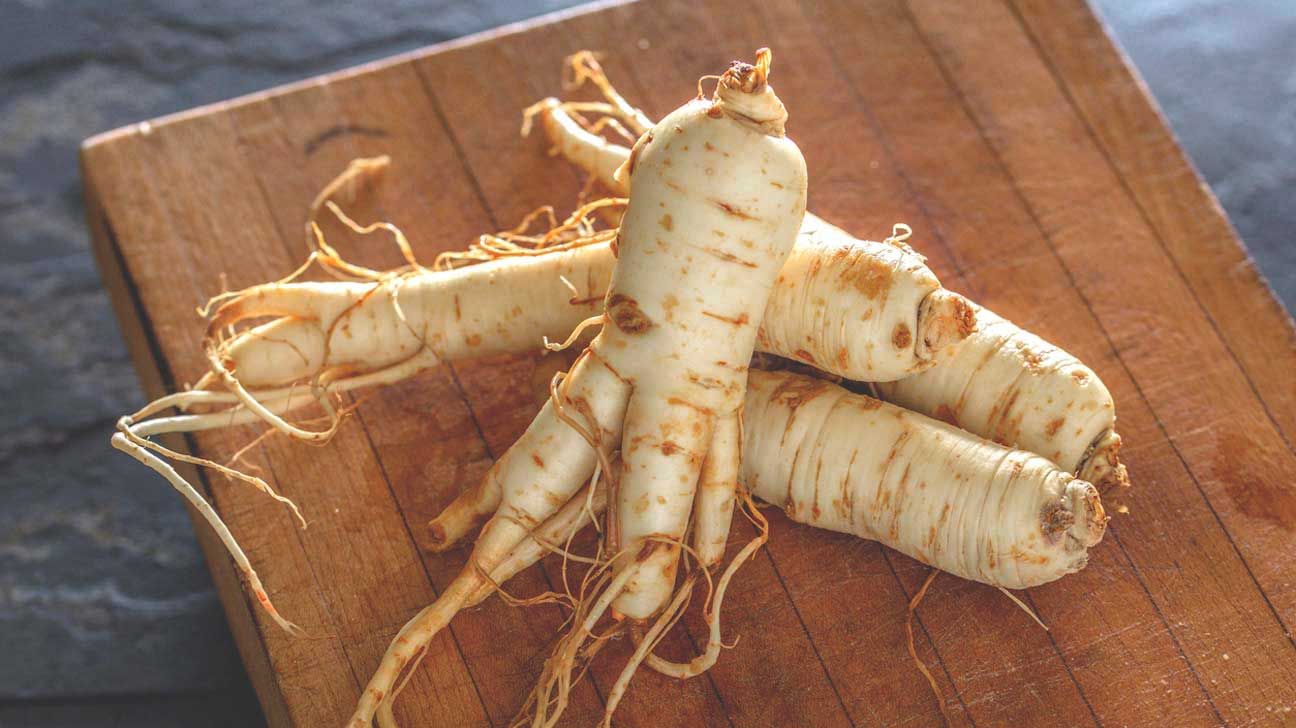
Image courtesy of healthline.com
AMERICAN GINSENG
American ginseng is a perennial plant of the ivy family, native to eastern North America. (Not to be confused with Panax Ginseng, which is native to China and Korea.) The roots of American Ginseng are used to make herbal medicine. Ginseng is an antioxidant with nootropic, or cognitive-enhancing, effects. Ginseng may be used to correct imbalances in the endocrine system, to decrease fatigue, balance blood glucose levels, and boost your mood.
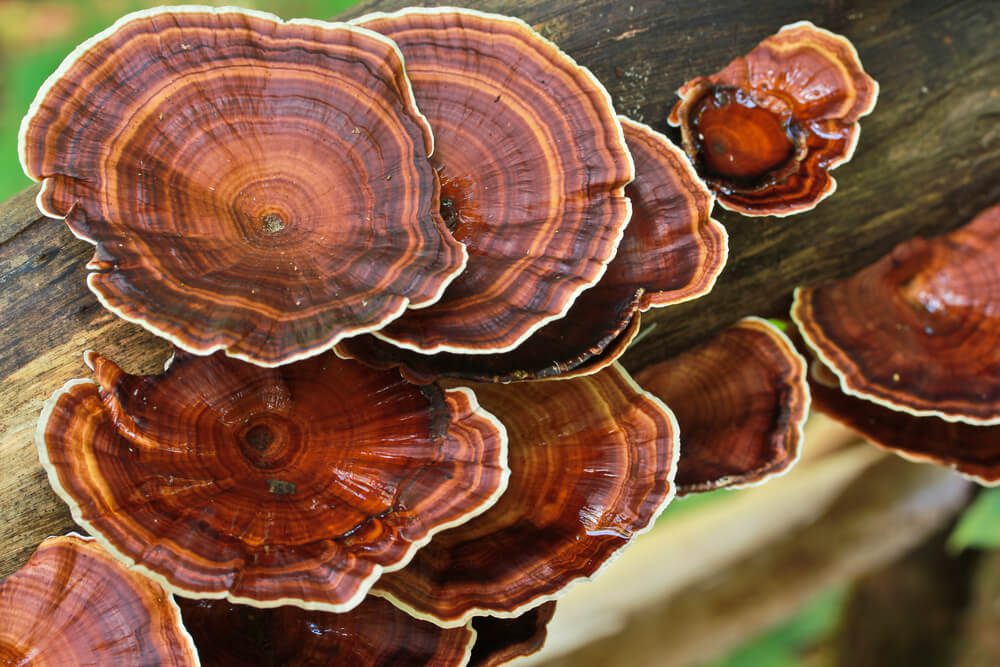
Image courtesy of gardenmotherherbs.com
REISHI MUSHROOMS
Mushrooms have been used by eastern cultures for thousands of years and each species has its own unique benefits. Reishi is an antioxidant-rich functional mushrooms with the potential to increase energy, boost the immune system, and reduce stress. It was originally found in China, Japan, and Korea, but today grows on hardwoods all over the world. They are rarely found wild, and are instead cultivated on maple, oak, and elm for commercial use.
*Ayurveda is an ancient Hindu medicine, based on the idea of creating balance in the body systems. Many of the adaptogens mentioned are important components of Ayurvedic medicine.






